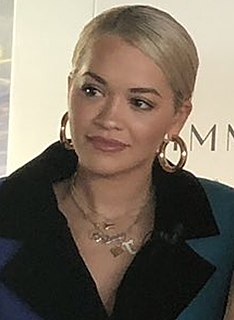A Quote by Jane Pauley
I have a very good sense of tone, and it's possible to talk about very personal things and maintain a level of dignity and even privacy - to go to the place, to talk about it, but not get icky.
Related Quotes
It's really good to talk about it [ hydraulic penises and prosthetic butts], and it's very gratifying when people ask us about the other aspects of the film [Swiss Army Man], but [those things] are part of the movie and they're important and hilarious, a very fun part of the movie, so there's no sense from us of not wanting to talk about that. I think it's exciting that those things exist in a film that is also very heartfelt and emotional and profound.
If the movie is terrible you can have fun. You can joke about it and have a ball. The movie is already sort of established as a kind of extraordinary piece of work even though it hasn't opened yet to the public. It is harder because you can't go against it and you can't be interesting. You have to go with the flow. Although one is very happy to be in it, it is sort of hard to talk about it. It is hard to talk about successful. It is much easier to talk about failure.
On the contrary, it's because somebody knows something about it that we can't talk about physics . It's the things that nobody knows anything about that we can discuss. We can talk about the weather; we can talk about social problems; we can talk about psychology; we can talk about international finance gold transfers we can't talk about, because those are understood so it's the subject that nobody knows anything about that we can all talk about!
I always wanted to have a young female artist that would tell me the truth about life and not only talk about the good things or the things that were exciting or interesting but also talk about the things that people in general are skeptical to talk about- the bad things that do happen. A good 50% of our lives is things that are happening that we're not necessarily super thrilled about and I feel like that's missing from pop music a lot of the time so my main goal is to be truthful about everything and not just specific things.
Let’s talk, you and I. Let’s talk about fear. The house is empty as I write this; a cold February rain is falling outside. It’s night. Sometimes when the wind blows the way it’s blowing now, we lose the power. But for now it’s on, and so let’s talk very honestly about fear. Let’s talk very rationally about moving to the rim of madnessand... and perhaps over the edge.
The more readings a novel has, even contradictory, the better. In journalism, you talk about what you know; you have provided yourself with records, you have gathered information, you have performed interviews. In a novel, you talk about what you don't know, because the novel comes from the unconscious. They are very different relationships with words and with the world. In journalism, you talk about trees; in the novel, you try to talk about the forest.
Sixty-five days principle photography, five-day weeks, which is the only way I'll work. With my cinematographer Russell Boyd, we take as much time as possible before pre-production, looking at stills. The next most important thing: he will come to me and talk about lenses. And I'll see his plan, which is generally great, and I might talk about how the light will be, handheld or not? I talk very freely, and try not to talk specifically, just talk around it, because it can unlock all sorts of things.
































